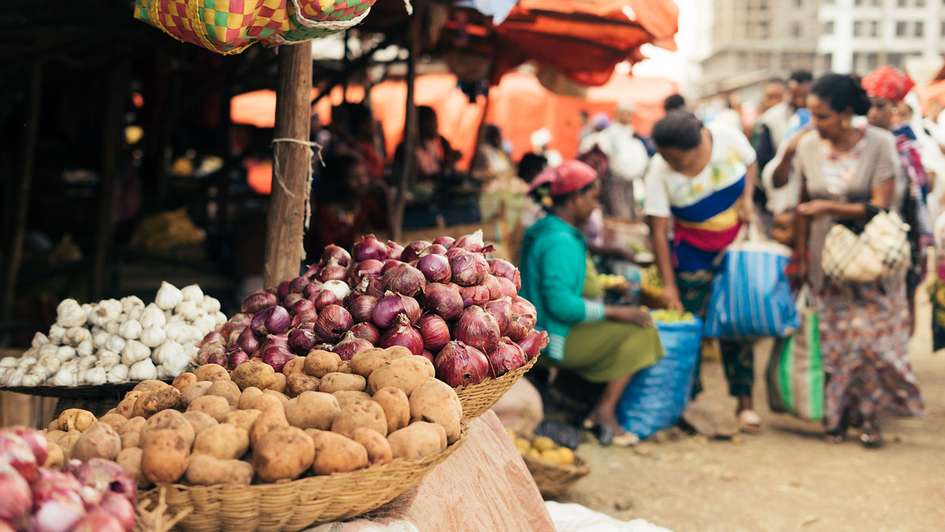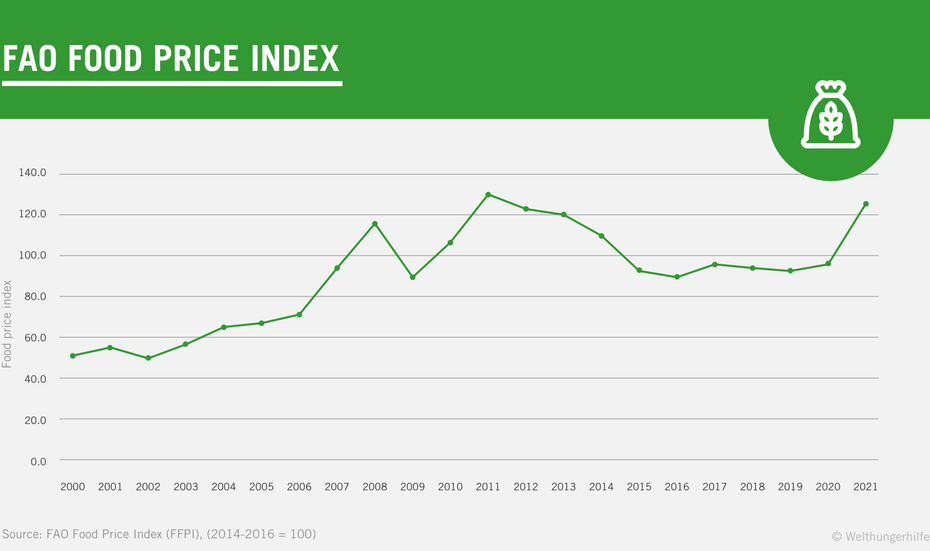Food Prices Approaching Record Highs
Welthungerhilfe Warns of Growing Hunger Due to Rising Food Prices

Bonn/Berlin, 2022-01-13. Welthungerhilfe is warning that rising food prices throughout the world herald an increase in hunger as well. In 2021, the United Nations’ FAO Food Price Index, which tracks prices for the world’s most traded food items, recorded the highest figures seen since 2011.
“We are concerned to see prices for grain, dairy products, cooking oil, and other food staples trending in only one direction: upwards. This is extremely alarming because sustained high food prices can exacerbate existing hunger crises. There are already around 811 million people going hungry worldwide,” says Dr Rafaël Schneider, the deputy head of Welthungerhilfe’s policy unit. This price increase can be traced back to a combination of various factors. For one, rising energy prices are making transport more expensive and are causing fertiliser prices to explode. For another, crops are increasingly failing due to climate change–related weather extremes. Compounding factors include the coronavirus pandemic, poor infrastructure, and violent local conflicts. Political circumstances also exert pressure on the prices, for example if it is foreseeable that grain exports from countries like Ukraine could be lacking.
Prices also rise in Germany
Expensive food is a problem for people throughout the world. In Germany, rising prices for noodles, coffee, and margarine are a burden on many family budgets as well, although the average German household spends only around 12 percent of its budget on food. In many of Welthungerhilfe’s partner countries, this figure is much higher. “In Sierra Leone, the number of households that spend more than 75 percent of their income on food nearly doubled between 2020 and 2021,” says Schneider. “Rising food prices lead not only to poverty but directly to hunger as families skip meals and buy cheaper, less healthy food. Child labour rates increase because parents are forced to send their children to earn money rather than to school.”
Food prices show no signs of stabilising in 2022. In fact, harvest projections for hunger-stricken regions in Africa and Asia are dire. “The affected countries need to quickly prepare social security measures to ensure that people are provided for. In the medium term, they must invest more in their agricultural sector because the lack of action taken after the previous crises is now taking its toll,” urges Schneider. “Countries like Germany are called upon to expand their support for rural development and for the fight against hunger. In the short term, they should work to avoid export bans on agricultural products.”
Interview partner
Dr Rafaël Schneider, the deputy head of Welthungerhilfe’s policy unit, is available for interview.
Welthungerhilfe is one of the largest private aid organisations in Germany; politically independent and non-denominational. It is fighting for “Zero Hunger by 2030”. Since it was founded in 1962, more than 10,369 overseas projects in 70 countries have been supported with 4.2 billion euros. Welthungerhilfe works on the principle of empowering people to help themselves: from fast disaster relief to reconstruction and long-term development cooperation projects with national and international partner organisations.








